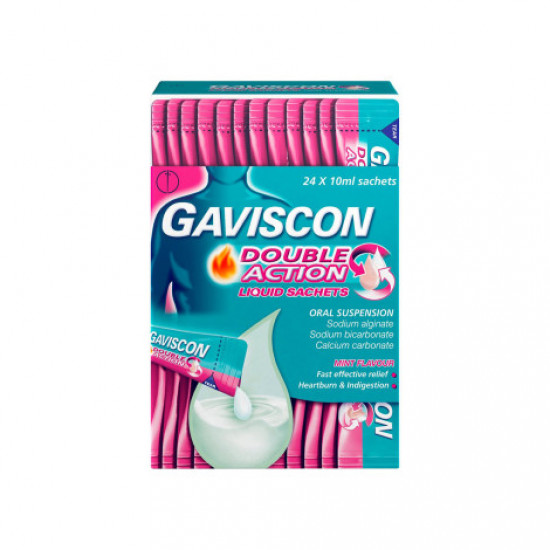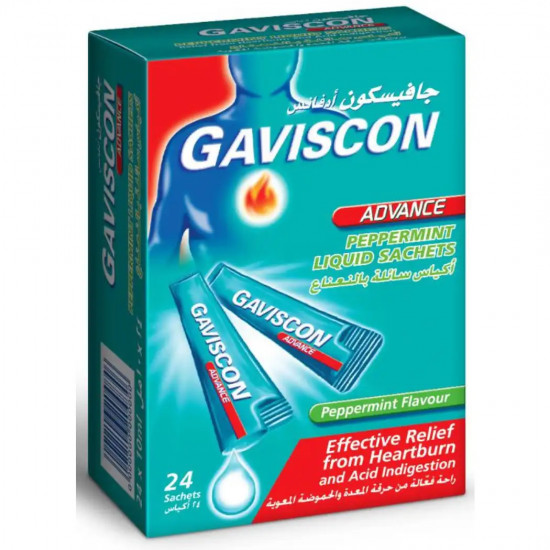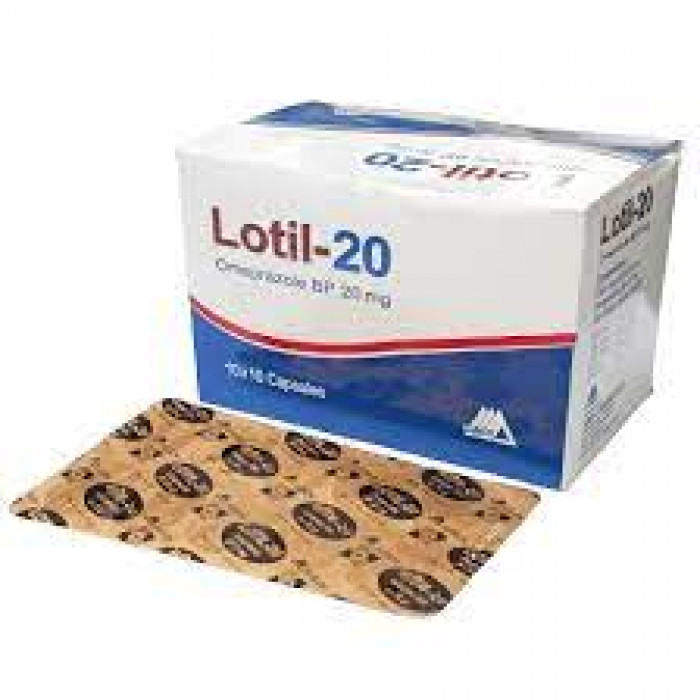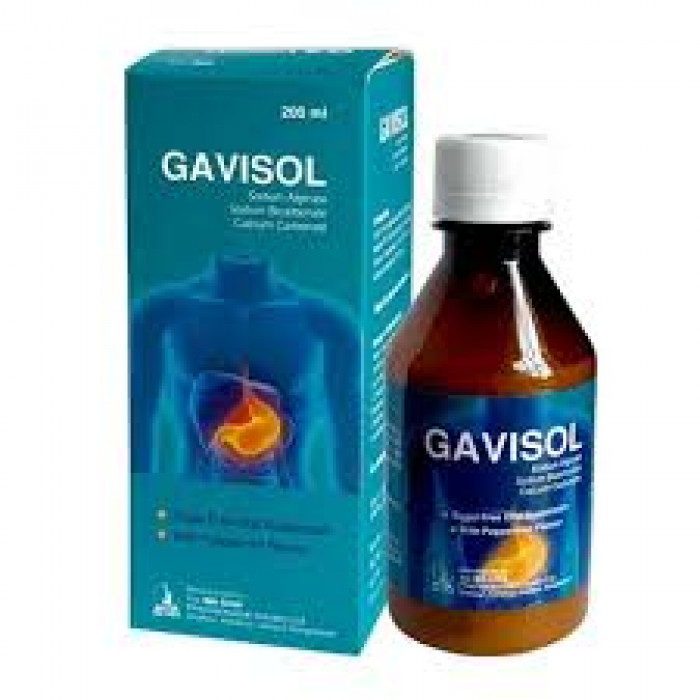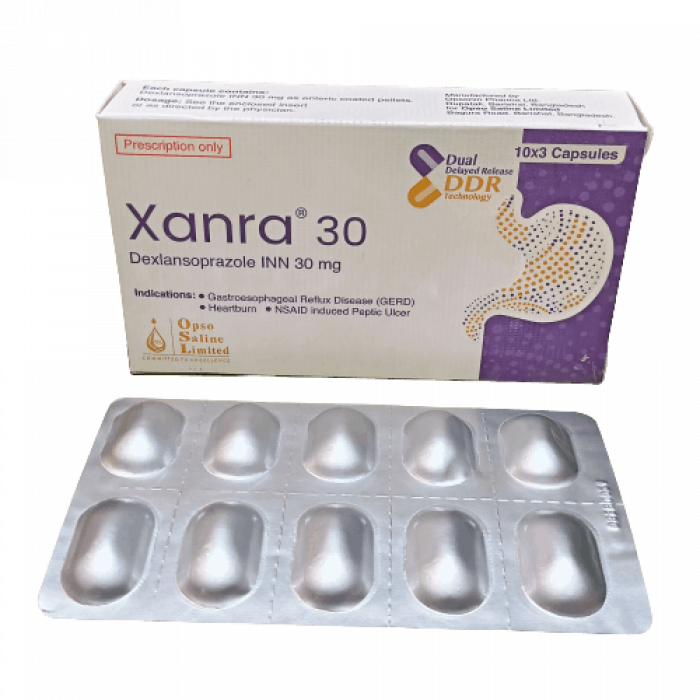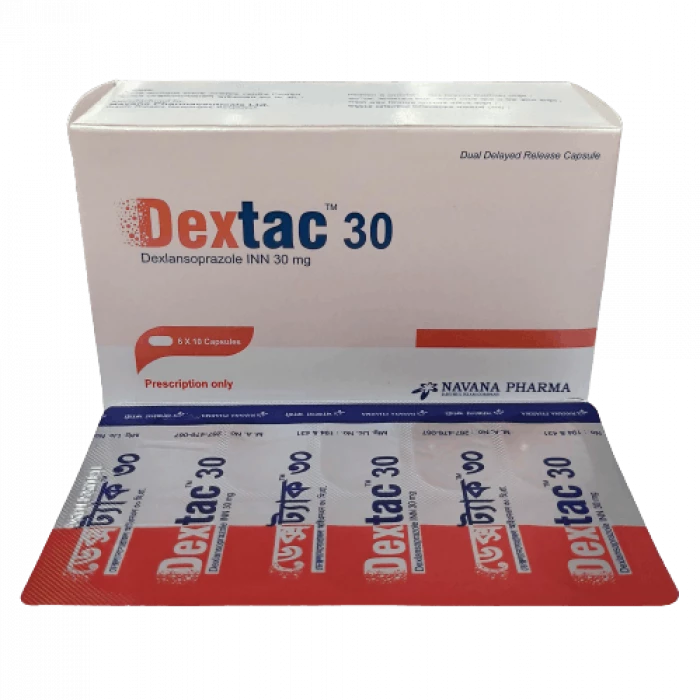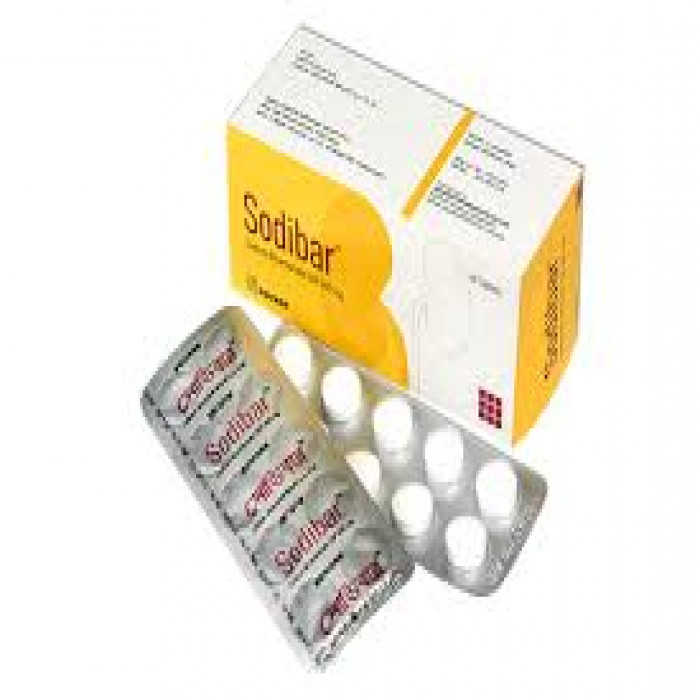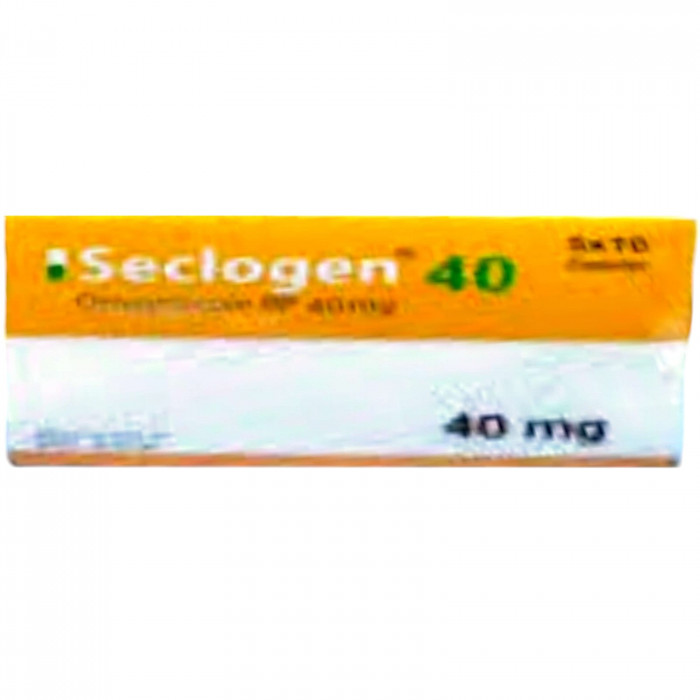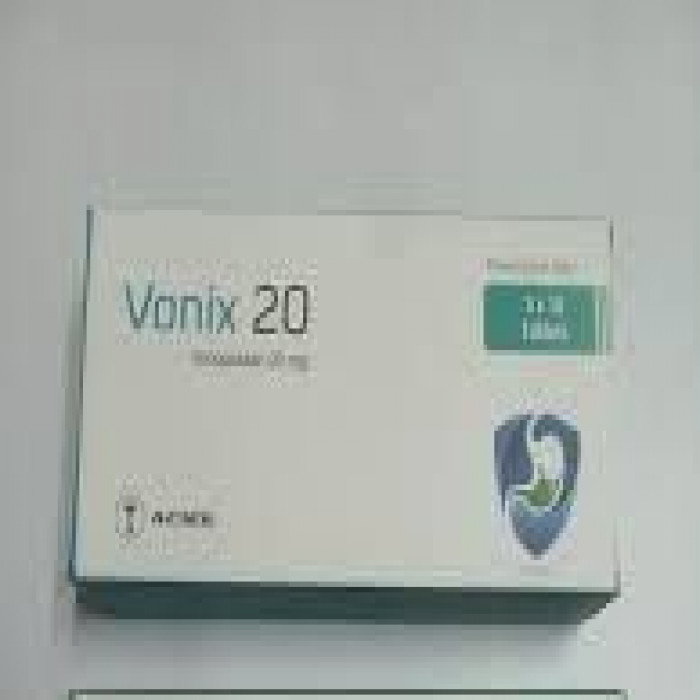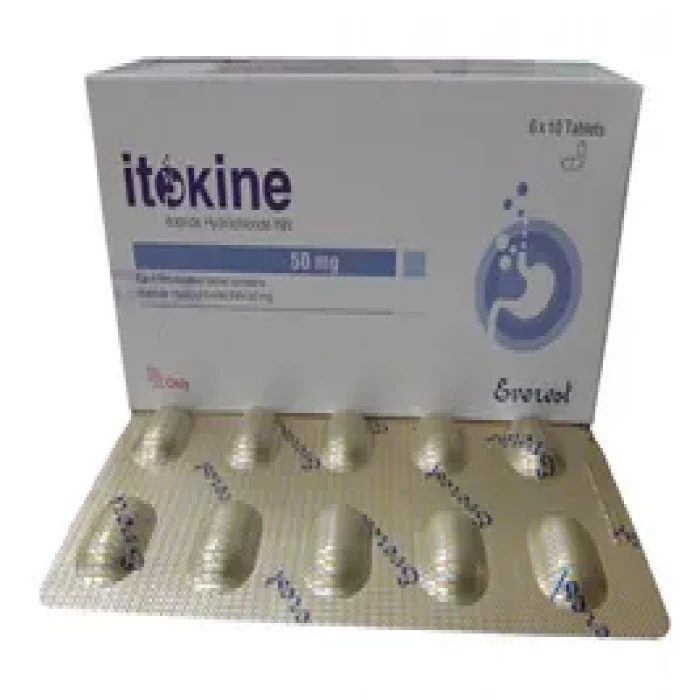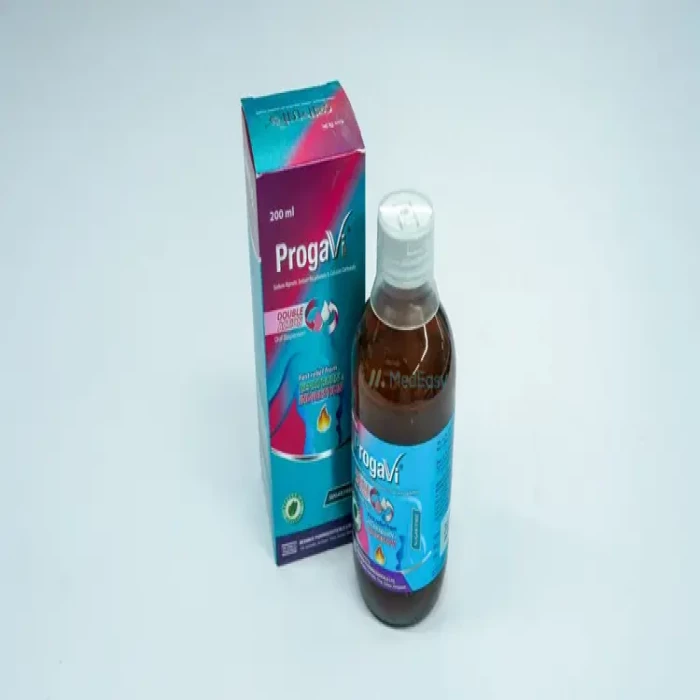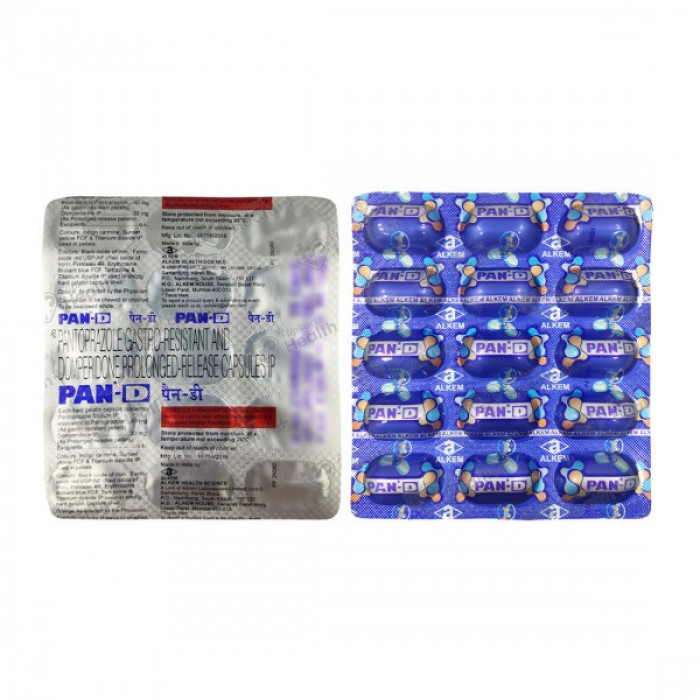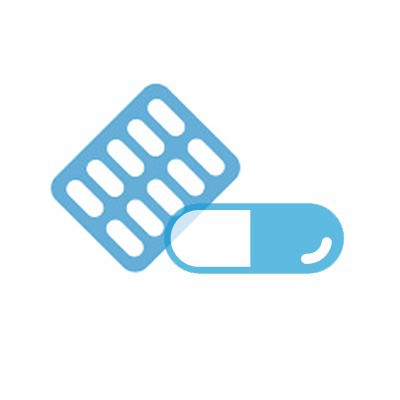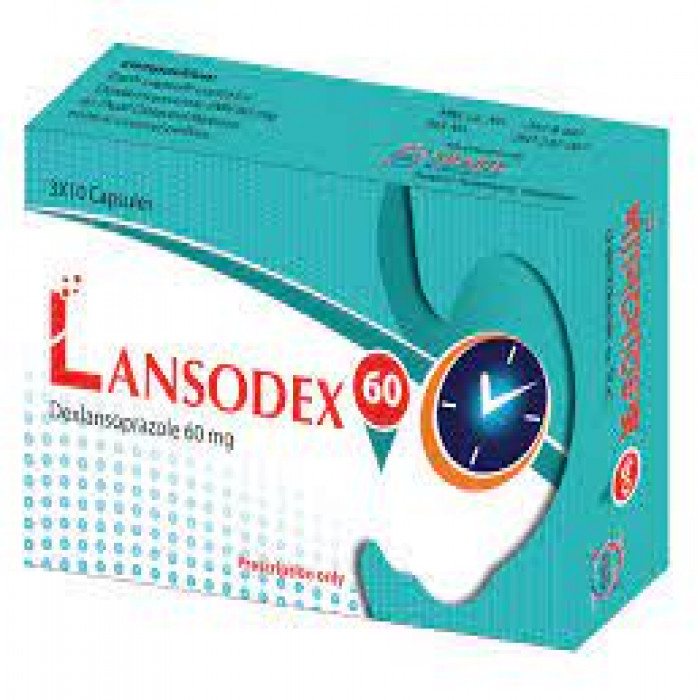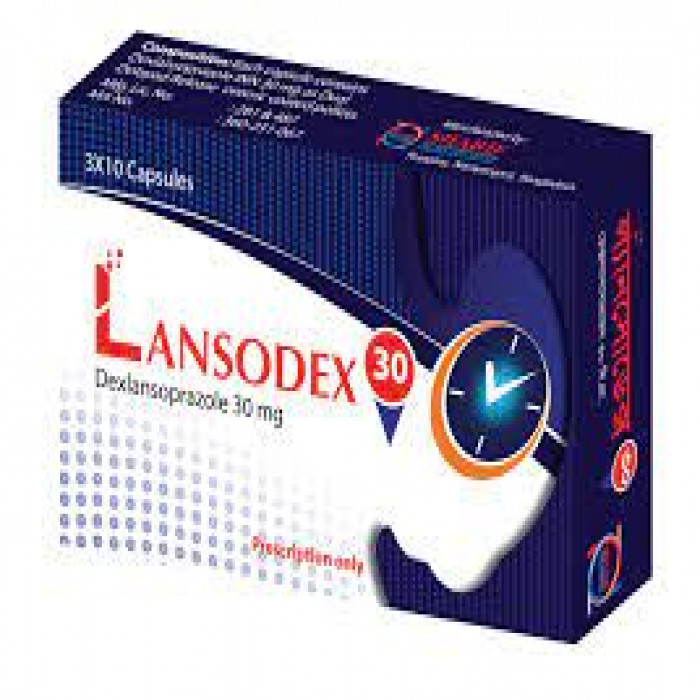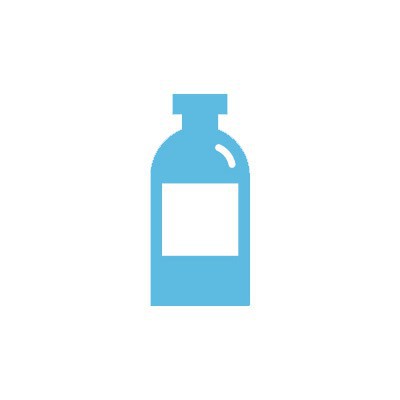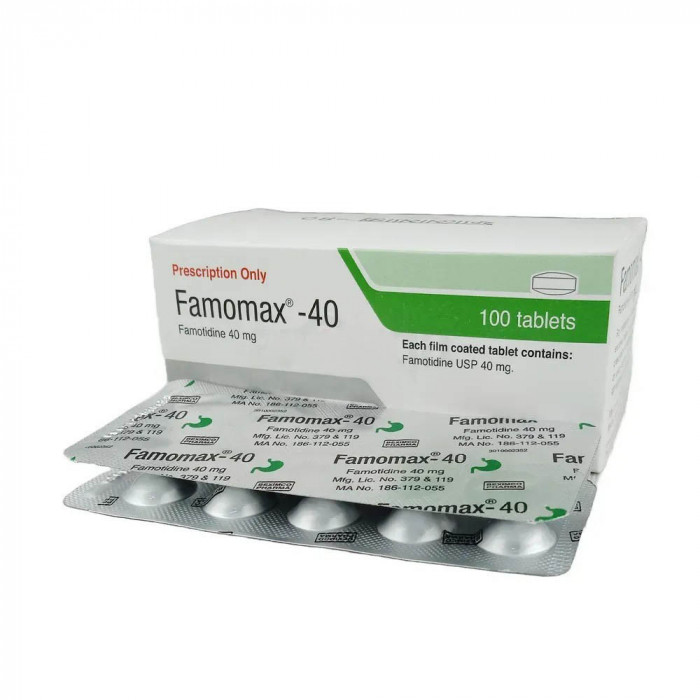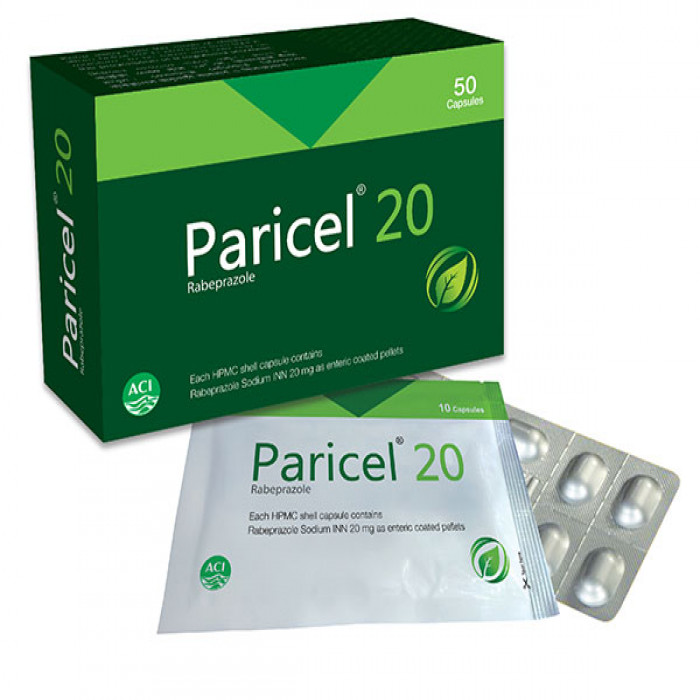
✔ 100% Authentic Product
👁️ Currently Viewing 807
100% Genuine Products, Guaranteed
Safe & Secure Payments, Always
Fast, Secure & Efficient Delivery
Proper Packaging
 Cash on Delivery - All over Bangladesh
Cash on Delivery - All over Bangladesh Regular Delivery - 12-24 Hours, Dhaka City*
Regular Delivery - 12-24 Hours, Dhaka City* Regular Delivery - 24-48 Hours, All Over Bangladesh*
Regular Delivery - 24-48 Hours, All Over Bangladesh* ফ্রি ডেলিভারিঃ - ৯৯৯ টাকা+ অর্ডারে, ঢাকা
শহরে
ফ্রি ডেলিভারিঃ - ৯৯৯ টাকা+ অর্ডারে, ঢাকা
শহরে ফ্রি ডেলিভারিঃ - ২৯৯৯ টাকা+ অর্ডারে, ঢাকার
বাহিরে
ফ্রি ডেলিভারিঃ - ২৯৯৯ টাকা+ অর্ডারে, ঢাকার
বাহিরে
✅ Description:
Indications
Healing of Erosive or Ulcerative Gastro-Esophageal Reflux Disease (GERD)
Maintenance of healing of Erosive or Ulcerative Gastro-Esophageal Reflux Disease (GERD)
Prevention of Relapse of Gastro-Esophageal Reflux Disease (GERD)
Treatment of Symptomatic Gastro-Esophageal Reflux Disease (GERD)
Healing of Duodenal & Gastric Ulcers
Helicobacter pylori eradication to reduce the risk of Duodenal & Gastric Ulcer
Recurrence Treatment of pathological hypersecretory conditions including Zollinger-Ellison Syndrome
Pharmacology
Paricel® is a preparation of Rabeprazole Sodium. It is an antisecretory compound that suppresses gastric acid secretion by inhibiting the gastric H+, K+ ATPase at the secretory surface of the gastric parietal cell.
Dosage & Administration
Active Duodenal Ulcer and Active Benign Gastric Ulcer: For both bioactive duodenal ulcer and active benign gastric ulcer, the suggested oral dose is 20 mg once daily in the morning. The majority of people who have an active duodenal ulcer heal within four weeks. A few patients, however, may require an additional four weeks of therapy to recuperate. The majority of patients with an active benign gastric ulcer heal in six weeks or less. However, some individuals may need an additional six weeks of therapy to fully recover.
Erosive or Ulcerative Gastro-Esophageal Reflux Disease (GERD): For this condition, a 20 mg oral dose administered once day for four to eight weeks is advised.
Long-term GERD management (GERD Maintenance): Depending on the patient's reaction, a maintenance dose of rabeprazole sodium 20 mg or 10 mg once daily can be used for long-term GERD management.
In patients without oesophagitis, 10 mg once daily is used to treat symptoms of moderate to severe Gastro-Esophageal Reflux Disease (symptomatic GERD). If symptom management isn't obtained after four weeks, the patient should be evaluated further. Following the resolution of symptoms, symptom control can be achieved with an on-demand regimen of 10 mg once daily as needed.
The suggested adult beginning dose for Zollinger-Ellison Syndrome is 60 mg once a day. Depending on the demands of the patient, the dose can be increased to 120 mg per day. Single daily dosages of up to 100 mg are permissible. It's possible that a 120 mg dose will need to be split into two 60 mg doses twice a day. Treatment should be continued for as long as the doctor recommends.
pylori eradication pylori: H. pylori patients Eradication therapy should be used to treat H. pylori infection. It is suggested that you take the following mixture for 7 days. Amoxicillin 1g twice daily, clarithromycin 500 mg twice daily, and rabeprazole sodium 20 mg twice daily.
Rabeprazole pills should be taken in the morning, before eating, for purposes needing once-daily treatment. Although neither time of day nor food consumption has been demonstrated to affect rabeprazole sodium action, this routine will help with treatment compliance. Rabeprazole tablets should not be chewed or crushed; instead, they should be eaten whole.
Interaction
Gastric acid secretion is profoundly and long-lastingly inhibited by respite. It's possible that you'll come into contact with a substance whose absorption is pH-dependent. When rabeprazole sodium is used with ketoconazole or itraconazole, antifungal plasma levels may be significantly reduced. When ketoconazole or itraconazole are used together with Respite, individual patients may need to be watched to see if a dosage adjustment is necessary. There was no interaction with liquid antacids. Atazanavir's absorption is pH-dependent. As a result, PPIs, such as rabeprazole, should not be taken with atazanavir.
Contraindications
Hypersensitivity to the active ingredient or any excipient. Rabeprazole is not recommended during pregnancy or nursing.
Side Effects
Rabeprazole is generally well tolerated in both short and long-term studies. Headache, diarrhoea, abdominal discomfort, vomiting, constipation, dry mouth, increased or decreased hunger, muscle soreness, sleepiness, and dizziness are all possible side effects of rabeprazole.
Pregnancy & Lactation
Pregnancy category 'C' according to the US Food and Drug Administration. Rabeprazole has been studied in animals, and there has been no evidence of reduced fertility or injury to the fetus as a result of its use. However, no suitable and well-controlled studies in pregnant women have been conducted. Because rabeprazole is likely to be excreted in human milk, a choice should be taken on whether to stop breastfeeding or stop taking the medication, taking into account the drug's importance to the mother.
Precautions & Warnings
Because a symptomatic response to Rabeprazole therapy does not rule out the presence of stomach or esophageal cancer, the potential of cancer should be ruled out before starting treatment with Rabeprazole 20 mg Gastro-resistant Tablets.
Patients on long-term treatment (especially those who have been on it for more than a year) should be monitored on a frequent basis.
Proton pump inhibitors, especially when used in high dosages and for long periods of time (>1 year), can raise the risk of hip, wrist, and spine fractures, especially in the elderly or in the presence of other known risk factors. Proton pump inhibitors may raise the total risk of fracture by 10–40%, according to observational studies. Other risk factors may have contributed to some of the increase. Patients at risk of osteoporosis should be monitored and supplemented with vitamin D and calcium as needed.
It's impossible to rule out the possibility of cross-hypersensitivity interactions with other proton pump inhibitors or substituted benzimidazoles.
Rabeprazole gastro-resistant pills should not be chewed or mashed, but rather eaten whole.
Post-marketing reports of blood dyscrasias have been reported (thrombocytopenia and neutropenia). When an alternate aetiology could not be found, the occurrences were usually straightforward and resolved after the rabeprazole was stopped.
Hepatic enzyme abnormalities have been observed in clinical trials and published since the drug's approval. When an alternate aetiology could not be found, the occurrences were usually straightforward and resolved after the rabeprazole was stopped.
A study of patients with mild to moderate hepatic impairment compared to normal age and sex matched controls found no evidence of substantial drug-related safety issues. However, because no clinical data on the use of rabeprazole in the treatment of patients with severe hepatic dysfunction exists, prescribers should proceed with caution while using Rabeprazole 20mg Gastro-resistant. In such patients, tablet therapy is started first.
It is not suggested to take atazanavir and Rabeprazole together.
Proton pump inhibitors, such as rabeprazole, may raise the risk of gastrointestinal infections such Salmonella, Campylobacter, and Clostridium difficile.
Hypomagnesaemia: Patients on PPIs like rabeprazole for at least three months, and in most cases for a year, have been documented to have severe hypomagnesaemia. Hypomagnesaemia can cause serious symptoms like weariness, tetany, delirium, convulsions, dizziness, and cardiac arrhythmia, although it can start slowly and go unnoticed. After magnesium replenishment and termination of the PPI, hypomagnesaemia improved in the majority of affected patients. Before commencing PPI treatment, health care providers should consider testing magnesium levels in patients who are expected to be on long-term treatment or who are taking PPIs with digoxin or other treatments that can cause hypomagnesaemia (e.g., diuretics).
Influence on vitamin B12 absorption: Rabeprazole sodium, like many acid-blocking medications, can limit vitamin B12 (cyanocobalamin) absorption due to hypo- or a-chlorhydria. This should be explored in patients on long-term medication who have low body reserves or risk factors for low vitamin B12 absorption, or if clinical signs are present.
SCLE (subacute cutaneous lupus erythematosus): Proton pump inhibitors have been linked to a very small number of cases of SCLE. If lesions appear on the skin, especially in sun-exposed areas, and are accompanied by arthralgia, the patient should seek medical attention immediately, and the doctor should consider terminating Rabeprazole.
Interference with laboratory tests: A high level of Chromogranin A (CgA) can cause problems with neuroendocrine tumor examinations. Rabeprazole 20mg Gastro-resistant Tablets medication should be stopped for at least 5 days before CgA readings to avoid this interference. If CgA and gastrin levels have not returned to the reference range 14 days after stopping proton pump inhibitor treatment, tests should be redone.
Storage Conditions
Keep the temperature below 30°C and away from light and moisture. Keep out of children's reach.
⚠️Disclaimer:
At ePharma, we’re committed to providing accurate and accessible health information. However, all content is intended for informational purposes only and should not replace medical advice from a qualified physician. Please consult your healthcare provider for personalized guidance. We aim to support, not substitute, the doctor-patient relationship.





